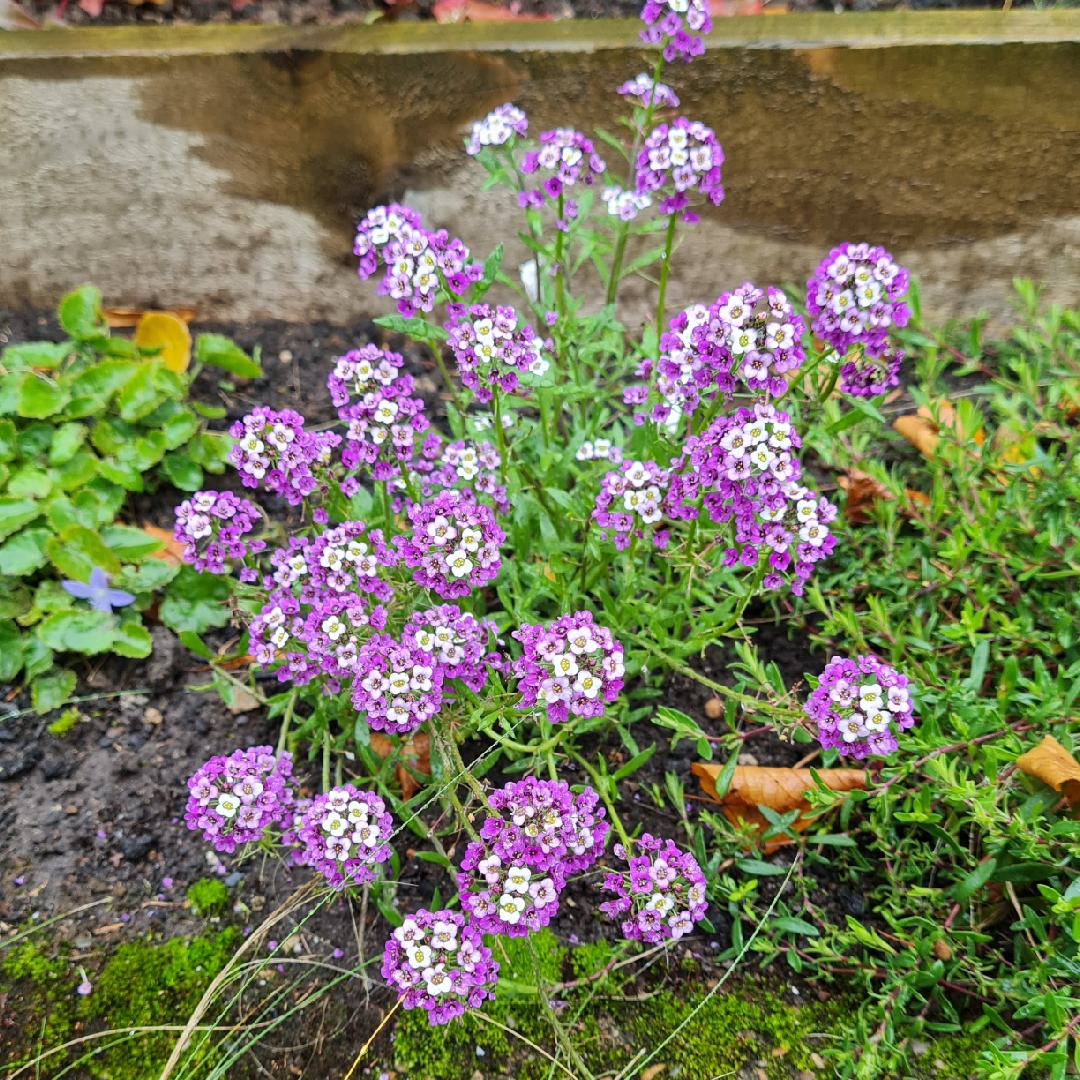
Lobularia maritima 'Violet Queen'
Sweet Alyssum 'Violet Queen'
Lobularia maritima, or Alyssum maritimum (commonly referred to as sweet alyssum, sweet alison, or just alyssum) is a species of low-growing flowering annual plants part of the Brassicaceae family. It is native to western and central Mediterranean areas, often found on sandy beaches. The stem is very branched, with dense clusters of fragrant small white, purple or pink flowers. The flowers are produced throughout the growing season, or year-round in areas free of frost. In mild winters, it may continue as a short lived perennial plant. 'Violet Queen' is a compact bushy plant with clusters of fragrant lilac purple or deep purple flowers.
Contributed by @jpea
-
Partial shade
-
Very little water
-
A little frost hardy: 32F (0°C)
-
Light and free draining
Common name
Sweet Alyssum 'Violet Queen'
Latin name
Lobularia maritima 'Violet Queen'
type
Annual
family
Brassicaceae
ph
5.0 - 7.0 Acid - Neutral
Plant & bloom calendar
-
Best time to plant
full grown dimensions
 0.30 M
0.25 M
0.30 M
0.25 M
Lobularia maritima 'Violet Queen'
Lobularia maritima, or Alyssum maritimum (commonly referred to as sweet alyssum, sweet alison, or just alyssum) is a species of low-growing flowering annual plants part of the Brassicaceae family. It is native to western and central Mediterranean areas, often found on sandy beaches. The stem is very branched, with dense clusters of fragrant small white, purple or pink flowers. The flowers are produced throughout the growing season, or year-round in areas free of frost. In mild winters, it may continue as a short lived perennial plant. 'Violet Queen' is a compact bushy plant with clusters of fragrant lilac purple or deep purple flowers.
Planting young plants
From Early Spring TO Early Spring
The plant is best planted in early spring, in light and well drained soil. Plant in full sun. It requires little maintenance when growing. Although an annual, it may reseed in temperate climates. It is also grown in cracks in paving and walls, and is especially associated with coastal locations. It prefers partial shade, and is resistant to heat and drought.








